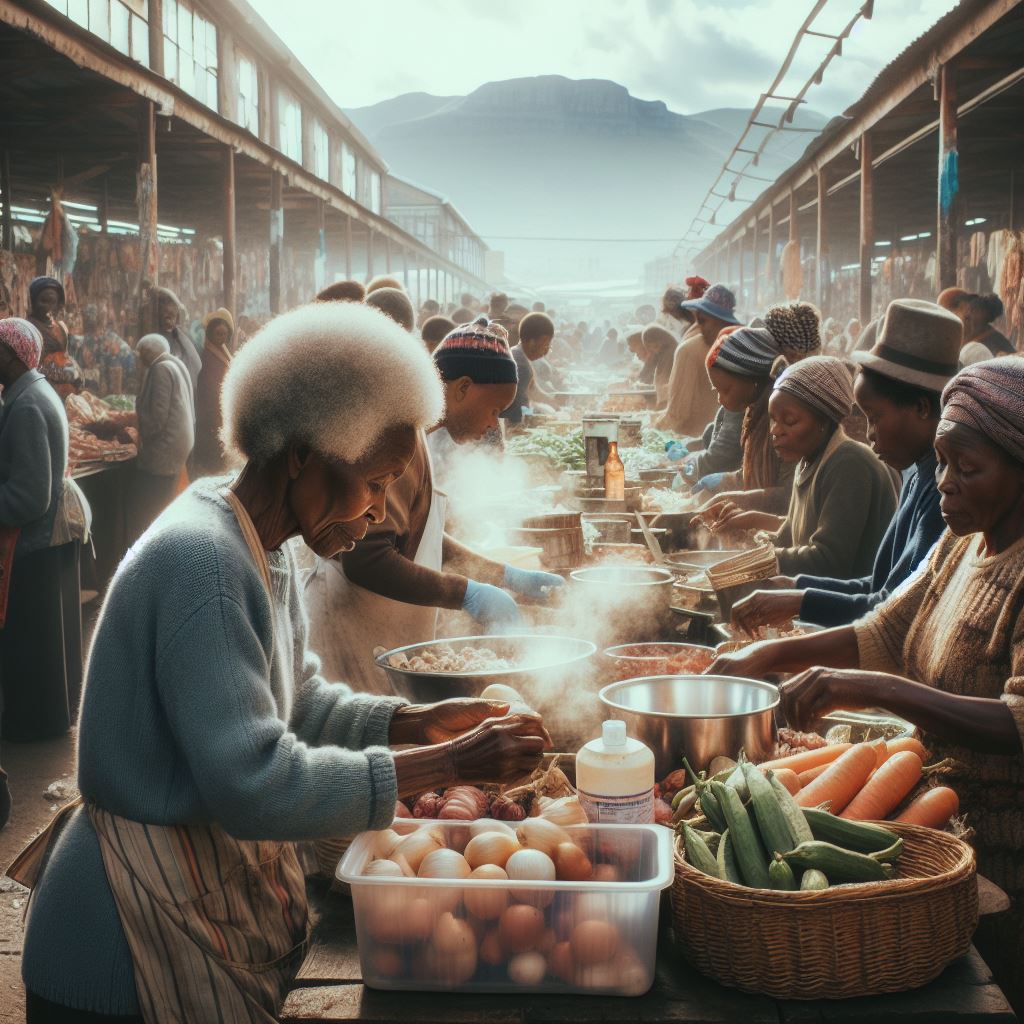South Africa’s economy is a complex and multifaceted system influenced by a myriad of factors, including historical legacies, socio-political dynamics, global market trends, and natural resource endowments. To comprehend the nature of South Africa’s economy, it’s imperative to explore its structural composition, key sectors, challenges, and prospects. This article provides a comprehensive analysis of the type of economy South Africa has, examining its characteristics, strengths, weaknesses, and the broader socio-economic context in which it operates.

Defining South Africa’s Economy
South Africa’s economy can be characterized as a mixed economy with elements of both market-driven capitalism and government intervention. It combines free-market principles with state intervention to address socio-economic disparities, promote inclusive growth, and safeguard public welfare. The country’s economic system is shaped by historical factors such as apartheid-era policies, colonial legacies, and post-apartheid reforms, which have influenced its trajectory and development priorities.
Key Sectors and Industries
South Africa’s economy is diversified across various sectors, with significant contributions from:
- Mining and Minerals: Historically, mining has been a cornerstone of South Africa’s economy, providing valuable resources such as gold, platinum, coal, and diamonds. Despite declining contributions to GDP, the mining sector remains a critical source of export revenue, employment, and foreign investment.
- Manufacturing: The manufacturing sector plays a vital role in South Africa’s industrialization and economic development, encompassing automotive, steel, chemicals, textiles, and agro-processing industries. Manufacturing contributes to value addition, job creation, and technological innovation, supporting downstream industries and export competitiveness.
- Financial Services: South Africa’s financial services sector is well-developed and globally integrated, encompassing banking, insurance, asset management, and capital markets. Johannesburg serves as the financial hub of Africa, attracting investment, facilitating trade, and driving economic growth.
- Agriculture: Agriculture remains a significant sector in South Africa, contributing to food security, rural livelihoods, and agro-processing industries. Commercial farming dominates the sector, producing crops such as maize, wheat, citrus, and wine, while smallholder farmers face challenges related to access to land, water, and markets.
- Tourism: Tourism is a key driver of South Africa’s economy, attracting millions of international visitors each year to explore its diverse landscapes, wildlife, and cultural heritage. The tourism sector contributes to job creation, foreign exchange earnings, and regional development but faces challenges related to infrastructure, safety, and sustainability.
Socio-Economic Challenges
Despite its strengths, South Africa’s economy faces numerous challenges that hinder inclusive growth, economic transformation, and sustainable development. These challenges include:
- Structural Inequality: South Africa remains one of the most unequal societies globally, characterized by disparities in income, wealth, and access to opportunities. Structural inequality perpetuates social exclusion, poverty, and marginalization, exacerbating socio-economic tensions and hindering social cohesion.
- Unemployment and Informal Sector: Unemployment rates in South Africa are persistently high, particularly among youth and historically disadvantaged groups. The informal sector provides a safety net for many individuals but lacks job security, social protection, and access to formal opportunities.
- Policy Uncertainty: Policy uncertainty and political instability undermine investor confidence, economic growth, and business competitiveness. Inconsistent policy implementation, regulatory burdens, and governance challenges hamper private sector investment and economic diversification efforts.
- Infrastructure Deficits: South Africa’s infrastructure deficit, including inadequate transport networks, energy constraints, and water scarcity, constrains economic productivity, investment, and regional integration. Addressing infrastructure bottlenecks is crucial for unlocking growth potential and enhancing competitiveness.
- Skills Shortages: Skills shortages and mismatches persist in South Africa’s labor market, limiting productivity, innovation, and human capital development. Improving education quality, enhancing vocational training, and promoting lifelong learning are essential for addressing skills gaps and enhancing employability.
Future Prospects and Opportunities
Despite these challenges, South Africa’s economy possesses inherent strengths and opportunities for growth, innovation, and transformation. These include:
- Regional Integration: South Africa’s strategic location and membership in regional economic blocs such as the Southern African Development Community (SADC) and African Continental Free Trade Area (AfCFTA) offer opportunities for trade, investment, and economic cooperation within the continent.
- Green Economy: Transitioning to a green economy presents opportunities for sustainable development, renewable energy investment, and climate resilience. South Africa’s abundant renewable resources, such as solar and wind, offer potential for clean energy production and green infrastructure development.
- Digital Innovation: Leveraging digital technologies and innovation hubs can stimulate entrepreneurship, digital inclusion, and economic diversification. Investing in digital infrastructure, e-commerce platforms, and digital skills development can unlock new opportunities for job creation and economic growth.
- Skills Development: Prioritizing skills development and education reforms is essential for building a competitive workforce, fostering innovation, and addressing youth unemployment. Public-private partnerships, vocational training programs, and apprenticeship schemes can enhance human capital development and labor market outcomes.
- Social Cohesion: Promoting inclusive growth and social cohesion is crucial for addressing inequality, poverty, and social exclusion. Adopting inclusive policies, promoting diversity and social dialogue, and empowering marginalized communities can foster a more equitable and resilient society.
Conclusion
In conclusion, South Africa’s economy is characterized as a mixed economy with diverse sectors, complex challenges, and promising opportunities. Understanding the country’s economic dynamics requires a holistic perspective that considers historical legacies, socio-economic disparities, and future prospects. By addressing structural inequalities, fostering inclusive growth, and leveraging its strengths, South Africa can navigate towards a more prosperous, equitable, and sustainable future. Through policy reforms, investment in human capital, and inclusive development strategies, South Africa can unlock its full economic potential and fulfill the aspirations of its people.
